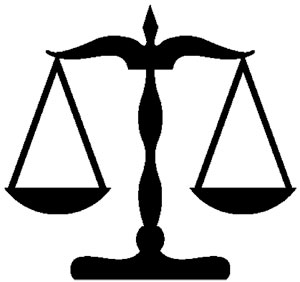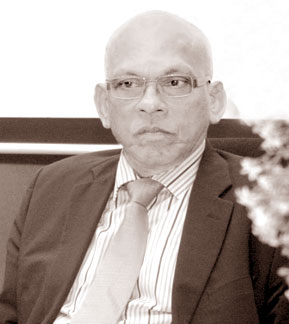'Judges need not be immune from public scrutiny' - Bar Association
President Geoffrey Alagaratnam:
by Anurangi Singh
Current President of the Bar Association, President's Counsel
Geoffrey Alagaratnam came into the limelight making allegations against
the media, claiming that it is irresponsible in its reporting on the
Judiciary, and asserting that legal action should be taken against such
media organisations.
 The Sunday Obsever sat down for a one on one interview with the
President of the Bar Association to seek clarifications on his comments,
and question on the legal system and its course of development. Mr.
Alagaratnam was elected in 2015 as President, Bar Association and his
term ends in March 2017. The Sunday Obsever sat down for a one on one interview with the
President of the Bar Association to seek clarifications on his comments,
and question on the legal system and its course of development. Mr.
Alagaratnam was elected in 2015 as President, Bar Association and his
term ends in March 2017.
Q: Your term is almost coming to an end, how do you feel? Do
you feel you have accomplished your task? Were you able to reach the
goals you set, at the beginning of your term in early 2015?
A: No, I don't feel I have completed my tasks. I hope to put
in place some of the mechanisms before I go, i.e. uniformity,
consistency and certainty in our operations, make the Bar Association a
professional and independent body, and render a bigger service to
society. I have dreams, some of which I hope to accomplish, though I
don't think I will be able to accomplish everything.
Q In terms of access to justice are you happy with where we
stand at the moment?
A: Not quite, if you mean access to justice in respect of
legal aid there is a fair amount of work done by the legal aid
commission. We have set up our own legal aid unit to cater to those who
cannot be catered to by the commission depending on the income brackets.
Access to justice is not only helping persons unable to afford access,
but also to ensure that everybody can go to an efficient system. They
are: law reforms, change in approach, mediation, Alternative Dispute
Resolution (ADR), etc. because everything doesn't have to come before a
court of law.
 Q: Some litigations go on for as long as twenty to thirty
years. Surely the purpose dies half way through. What can be done about
this? Q: Some litigations go on for as long as twenty to thirty
years. Surely the purpose dies half way through. What can be done about
this?
A: We must understand that it's not a problem that can be
solved overnight. In countries like Singapore and Malaysia they've taken
years to put their systems in order. Going 'electronic' or embracing
technology is not the only solution. Even with e-filing it's the men who
do it. What about the capacity of the court staff, the judges, the
lawyers who do e-filing, especially, in remote areas. I think we need an
attitude change.
I am a supporter of Alternative Dispute Resolution. Arbitration and
mediation systems have to be improved, to reduce the time taken on cases
by reducing the number of cases.
Then, case law management needs to be improved, how you track cases.
I believe the judiciary is not the best authority to track its own
cases. You need a different arm to monitor. The Chief Justice should be
the policy maker, supervising with a body of people. We need someone
like a CEO in the Supreme Court, who need not necessarily be a lawyer ,
who monitors and keeps records and reports so that clients know where
things go wrong. Many cases drag on for years, with unnecessary evidence
being led. Shouldn't we isolate and identify the core issues before we
start a trial, e.g. with a pre-trial conference to consider the
documents, witnesses what needs to be admitted and what needs to be
proved.
Q: In terms of a judge's role, do you think it should change
from the current adversarial system to a more inquisitorial system, or
should a system which is a mixture of both these systems be introduced?
A: I think, hearing a case should be an adversarial system.
Maybe in the pre-trial it could be inquisitorial, where judges should be
able to question why a case should be continued, if it lacks necessary
merit.
And in simple instances where cases are postponed, shouldn't there be
a state cost? In countries like Singapore there is a state cost. Even if
the judge is sitting, you have to pay a considerable amount if the case
is postponed. Even if the lawyer postpones it that amount should be paid
by the lawyer and not the litigant. We have to look into methods of
shortening the trial procedure and or bringing about a settlement at the
very early stage of litigation or before, by referring to ADR.
Now, even in appellate courts much time is taken on arguments. Even
when considering leave to appeal (the first stage of hearing) sometimes
parties argue for a whole day. In such instances shouldn't there be a
system to exert your authority and allow a limited time, maybe about 45
minutes. I have known cases where court sat for 3 or 4 days just to look
into the aspect of whether it is a matter worthy of further
consideration. Hence time management of cases should be changed.
Q: Do you think our judiciary is corrupt? If so what is the
mechanism you suggest to counter it?
A: No, I don't think our judiciary is corrupt. I agree that
society has its bad eggs. I wouldn't tarnish the judiciary in such a
manner. I believe the judiciary is under immense pressure. Maybe fear
was instilled by, not only by the last government but many political
parties too are at fault, trying to interfere with the Judiciary.
The Judiciary appears to be breathing better now. I am not saying
it's a perfect system or a perfect set of judges, but we are hopeful.
Much needs to be done to make it more independent, transparent and
answerable. We have recommended for example, that the Judicial Service
Commission be broad based with members of the Attorney General's
department, Bar Association, the Court of Appeal president and perhaps a
couple of civil society activists to make it fairly representative.
We have seen in the past Chief Justices controlling the Judicial
Service Commission and maybe unfairly punishing members. We should have
a system of judicial audit, to gauge the performance of a judge, such as
competency, attitude, etc. and, if there is corruption how it should be
dealt with. Promotions should be made on seniority, competency and
performance. We have recommended a separate Judicial Services
Disciplinary and Advisory Board, vested with powers to even discipline
Supreme Court judges, but not removing them as that is vested with the
President.
Q: About your accusations against the media saying they are
irresponsible and are tarnishing the reputation of the judiciary, isn't
it the responsibility of the media to bring such issues to the notice of
the public? And why would you think that Judges or the Judiciary should
be immune from such exposure?
A: I don't think judges should be immune from public scrutiny.
Judges should be criticized in the proper manner, if they have written a
judgment that is unworthy. But to say a judge took a bribe or was
influenced, if it is true there are mechanisms to refer to. You can
complain to the Chief Justice, the police or the CID. The CID would then
seek permission from the Chief Justice and initiate investigations. It's
not a question of attacking one judge. I am not saying that all judges
are honest. But, when you go on attacking a couple of judges the public
perception is that the entire Judiciary is bad, the entire Judiciary is
corrupt, whereby you're losing faith in the whole judicial system. Isn't
that bad for democracy? People will say, what's the use of going to
courts, as they too are corrupt. So there might be a hasty
generalization. Anyone can criticize a judgment, but to say a judge took
a bribe or was influenced is not a responsible way of criticizing.
Q: There have been some accusations of a judge's mobile and
official phone being tapped? Is this a genuine claim and what actions
will be taken against such conduct?
A: There has been criticism that the complaint was made by the
lawyer who has appeared for one of the accused. Then some ask, why
should the Bar take it up when there is a conflict of interest.
We can't proceed only on that basis as it's only hearsay. If that was
the case why hasn't the judge complained to the Chief Justice? Or in the
alternative, with the permission of the Chief Justice, report to the
CID, and say it is an interference with his public duties. It's not that
I disbelieve these statements but we are in a responsible profession. If
I appear for a party I can't have a personal interest in the matter, and
I cannot take it beyond the case. No first hand information has been
received to act on it. In my role as President of Bar Association I
cannot be taking on an investigative role.
Q: There is talk among litigants that lawyers in agreement
with judges get together with the Judiciary to agree on bail terms or
jail terms? Your comments?
A: I am not saying there could not be such incidents, but to
act on it, somebody has to complain and stand by it. The very person who
influences is not going to say I influenced. The person who is at the
receiving end should be able to provide this information. Then we can
take it up. Lots of people may be reluctant to expose that there are
such incidents. So how do we act? As I said no system has perfect
people.
Q: Standardising professionalism within the members of the
bar? How do we upgrade our standards in etiquette and conduct?
A: We have to get our systems in order. We need to catch them
young. We are churning out about 800 lawyers a year, with limited
resources, and may be with insufficient seniors to guide them. Some of
the basic things we have to teach them are: ethics, professionalism,
dress code, how to speak and conduct oneself, to be transparent and how
to quote fees and instruct the client. They are all fundamentals. But
none of them are inculcated. At present the Bar is closely working with
the Principal of Law College on aspects of legal education and
professionalism.
Q: Is that sufficient? Where can people complain of
unprofessional or unethical conduct where disciplinary action is needed
against such individuals?
A: We are currently looking into it. At the moment our
disciplinary procedure doesn't have enough teeth. In other countries
disciplinary procedures are controlled by the Bar, which can suspend its
members and even disenrol them. But in Sri Lanka it is the Supreme Court
that disciplines, not us. We can make a recommendation, or inquire into
complains. But there are allegations that our panels are slow or are
biased towards lawyers. Perhaps the Bar should take a more positive role
with a more effective mechanism and speedily deal with the complains. It
is not happening now.
|

